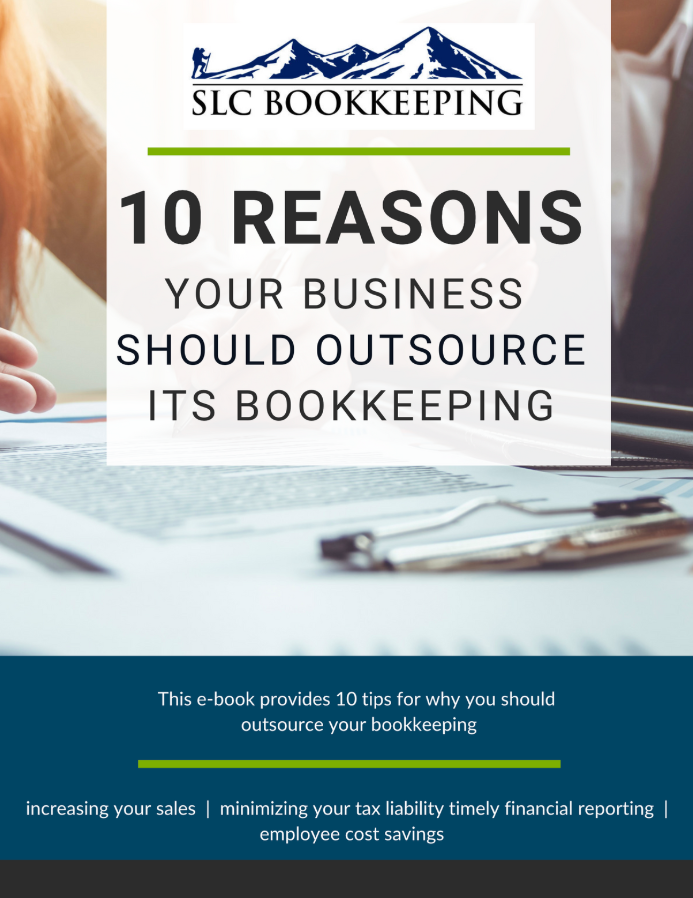Small Business Bookkeeping If It Were My Business
I wanted to share how I personally would handle my small business bookkeeping. You hear the saying all the time; "well if it were my fill in the blank here is what I would do." I heard it the last time I saw my mechanic; "well if it were my car." I started painting my house recently and my neighbor paints for a living and he said "if it were my house and I was doing the painting." You get the point, when you are unsure of how to handle something in your life or in business you reach out to a trusted colleague for advice. So if it were my business here is how I would handle the bookkeeping.
Reconcile QuickBooks
Reconciling is just a fancy term for balancing the check book. However, reconciling QuickBooks is hands down the most important bookkeeping task you need to be doing on a regular basis. Reconciling is the only way that you know you have accounted for every financial transaction that has occurred in your business. I see many businesses make the mistake of only reconciling the main bank account. You need to make sure that you reconcile all possible accounts. Any account that receives a monthly statement with a beginning and ending balance can be reconciled. It is important to reconcile all bank accounts, credit cards, loans, lines of credit and payroll liabilities.
Reconciling your books does not guarantee that your financials are accurate, but it does provide assurance that you have at least entered all of your transactions. If you have incorrectly coded a payment to a liability as an expense then obviously your financials would be inaccurate. Likewise, if you code an owner equity contribution as income you would be overstating your income. If you are unsure of how to code a particular transaction don't let that stop you from reconciling. All questionable transactions should be coded to the QuickBooks ask my accountant account to be flagged for review. Following this procedure will keep all of your questions organized in one account but will also allow you to reconcile.
Daily Reconciliations For Accurate Cash Flow
I am a huge fan of doing daily reconciliations in QuickBooks because if done correctly it is a great way to get a handle on your business cash flow. I see a lot of clients use their online balance to give them a feel for cash flow. The problem is that your online balances only account for posted transactions, not outstanding transactions. If you use QuickBooks properly by posting checks that have been cut, pending deposits and automatic payments to your bank accounts then you should have a really good handle on cash flow. The trick to using QuickBooks as a cash flow tool is to sort the bank account correctly. If you double click on your bank account from the QuickBooks chart of accounts it will open your banking register. In the lower left hand corner you should see a drop down box that says 'sort by.' If you select cleared status from the drop down box it will sort your bank account by cleared transactions, which are your reconciled transactions noted by a check mark in QuickBooks. You should now be able to see the last balance that you reconciled to and you should also now be able to tie that to one of the daily ending balances on your online banking activity. Now you can see where your bank balance is at but also where it is going.
Useful tips: Don't ever go into pending transactions and always make sure you tie out to a daily ending balance each time you manually reconcile.
Custom Financial Reports
I would definitely make the most out of my small business financial reporting. Too many businesses are carrying out their day to day bookkeeping and not taking advantage of the valuable information that a good bookkeeping system produces. The thing about QuickBooks is that it is great software for someone that doesn't necessarily understand accounting. By handling the day to day tasks of creating invoices, entering bills and receiving deposits all of the accounting will be handled behind the scenes. Of course QuickBooks does need to be set up properly in order for it to work. Getting good custom financial reports that actually mean something to your business may not be straightforward. I highly recommend getting a QuickBooks consultation to get the file set up properly and also to see the full capabilities of what financial reports are available to you.
Bookkeeping System As A Growth Tool
I always stress to new clients that they need to find a way to use their bookkeeping system as a tool to grow the business. I know that I am in the business of bookkeeping but I would say that I look at my personal set of business financial reports on average 1-2 times per week. Setting a budget and sales goals are only relevant if you are actually measuring your data and communicating the results to the key members of your staff. Your bookkeeping system is a great way to hold yourself and your staff accountable to the goals you have set. If your bookkeeping system is doing nothing but keeping you organized for tax time then you are not taking full advantage of it.
Like I said if it were my business this is how I would handle the bookkeeping. Don't settle for a bookkeeping system that just does the basics of tracking income and expenses. Raise your expectations of your bookkeeping system and use it to help you grow your business.


Comments